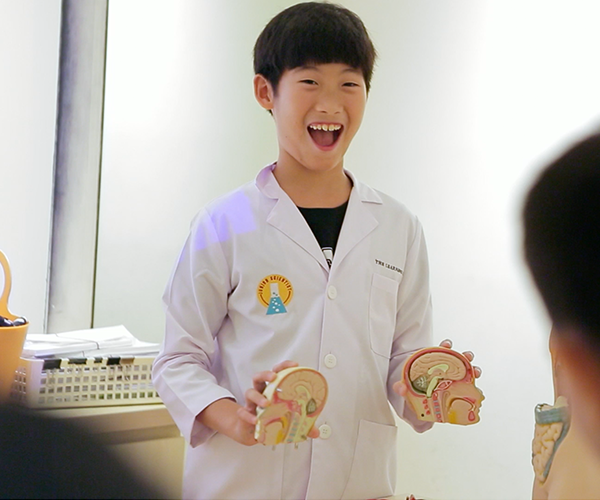
English is every Singaporean’s nominal first language, but you wouldn’t know it from the many ways we manage to mispronounce and mangle English words. Some 200 years after the first native speaker of the language (a man called Raffles) stepped foot on Singapore’s shores, English and Singaporeans continue to be uneasy bedfellows.
We even have our own spin-off now in Singlish, which has in turn been both celebrated and vilified. But whatever your opinion on Singlish, the fact remains that speaking English well is crucial for success in many areas of life, whether in school, at the workplace or when travelling abroad.
Here are 10 words you and your child will want to avoid mispronouncing when sitting for an oral examination or when speaking in a formal setting.

1. Tuition
Wrong: Tew-shun
Correct: Tyoo-i-shun
The next time your child tells you how much they enjoyed their “tew-shun” classes at The Learning Lab, take the opportunity to gently correct their pronunciation.
The first “i” in “tuition” needs to be enunciated. It really is for the better - the mispronunciation is certain to draw raised eyebrows from Cantonese speakers, for example.

2. Opportunity
Wrong: O-pour-chiunity
Correct: Op-uh-tyoo-nuh-tee
Speaking of opportunities, that’s another word that Singaporeans love to get wrong at every “o-pour-chiunity”. When in doubt, just remember that the only time you want to say “o-po” before something else is when referring to the phone brand.
At all other times, such as when talking about opportunities or opposition, go with “op-uh”.

3. Three (or other words with ‘Th’ sounds)
Wrong: Tree
Correct: Th-ree
Singaporeans as a whole tend to run into a lot of problems with ‘th’ sounds. So instead of “three” or “think” we end up saying “tree” or “tink” instead, leading to much confusion when we have to count trees. Something about ‘th’ sounds makes our tongues want to roll over and just give up. Or should I say, “someting”.

4. Clients
Wrong: Clines
Correct: Clai-uhnts
People like to say that their clients have a direct line to them whenever something comes up. But Singaporeans have somehow taken this a step further by combining clients with said direct lines so we can boast of our intimate relationships with our “clines”. Or maybe Singaporean professionals have gotten so successful that one day they looked out of their windows, saw a long line of clients waiting for them, and decided to lump the two things together? Who knows.

5. Salmon
Wrong: Sell-mun
Correct: Seh-mun
This one is really not our fault. The English language, with or without the intervention of Singaporeans, is an eclectic mish-mash of words and linguistic conventions from many other languages.
In the case of ‘salmon’, the confusion comes from the French word “saumon” being introduced into English during the Middle Ages when a group of French-speaking people called the Normans conquered England.
At the same time, the written language used by most educated people then (usually priests) was Latin, and the Latin word happened to be “salmo”. So the word continued being spelled with an ‘l’ even as people in England began to follow the Norman overlords in using the French pronunciation.
This is why children who put in the painstaking effort to learn English phonetically will still, upon encountering “salmon” for the first time, get the pronunciation wrong.

6. Divorce
Wrong: Die-vos
Correct: Dee-vos
A divorce is what happens when a marriage dies, so it makes perfect sense to pronounce the word as “die-vos”. That, at least, is what every Singaporean who has ever gotten the pronunciation wrong told themselves.
In our defence, the word ‘diversion’ is pretty similar to ‘divorce’ but is indeed pronounced “die-vuh-zhn”. The English language does not make sense all the time.

7. Sword
Wrong: Sw-ord
Correct: S-ord
One of the most common English idioms that children encounter in school is “the pen is mightier than the sword”.
Unfortunately, that also means plenty of opportunities to get the pronunciation of “sword” wrong. No one knows exactly why the “w” is silent in “sword” when it is the opposite for the equivalent word in many other European languages.
Perhaps an English “influencer” got the ball rolling hundreds of years ago to look cool and the pronunciation has stuck ever since?

8. Vegetable
Wrong: Veh-ji-table
Correct: Vej-tuh-bul
Vegetables are often called “veggies” for short. They are also often seen on tables. But neither is a good enough reason for Singaporeans to pronounce “vegetable” as a combination of the two, unless they are really referring to tables that are made out of vegetables.
Actually, not even then, since those would be vegetable tables.

9. Children
Wrong: Chew-ren
Correct: Chil-druhn
This mispronunciation is a classic that most people are aware of, yet it continues to be said everywhere, even by prominent politicians.
Singaporeans’ tongues like to head down the path of least resistance, and pronouncing the ‘l’ and then the ‘d’ sure seems like hard work.
But while a fellow Singaporean might be able to understand the mispronunciation, you will certainly want to avoid having an English speaker from another country wonder why you are talking about chewing while pointing at your children.

10. Colleague
Wrong: Ker-lick
Correct: Kor-leeg
Another common workplace aberration, the “ker-lick” combines with the “cline” to form a not so dynamic duo that together could cause some significant embarrassment, especially when you are trying to sing the praises of your “ker-licks” while speaking to your “clines”. Leave the licking of lines to those who belong behind bars, and follow the laws of good pronunciation!

Training Students to be Confident and Effective Speakers
The way Singaporeans tend to get all tangled up with English words can make for a good laugh, but getting the pronunciations right is serious business, and the first step towards being a clear and confident speaker.
At The Learning Lab, we believe in building a strong language foundation for our students to excel in both oral and written assessments.
The Learning Lab is now at locations. Find a location that suits your needs.
If you have any questions about our range of programmes or class schedules, you may contact us at 6733 8711 or drop us an email at enquiry@thelearninglab.com.sg.
The Learning Lab is now at locations. Find a location that suits your needs.
If you have any questions about our programmes, please email us at enquiry@thelearninglab.com.sg or call us at 6733 8711 and we will be happy to assist you.



